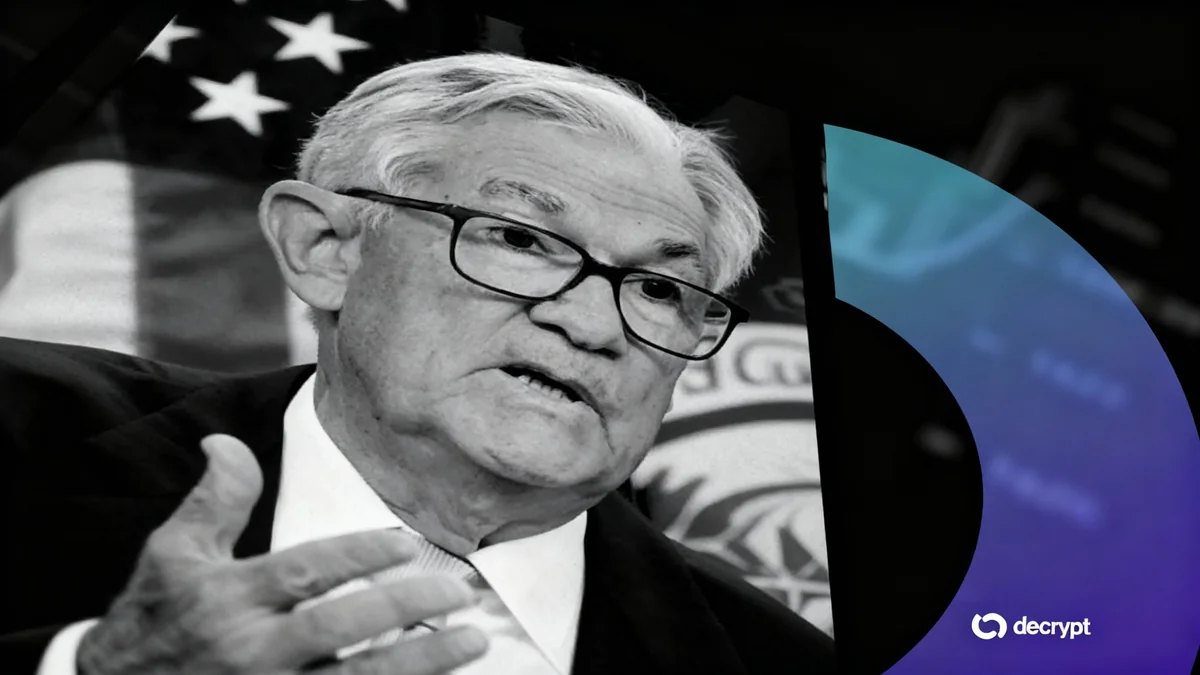House Speaker Mike Johnson has signaled a strong collaborative relationship between House Republicans and leaders from the cryptocurrency industry. Following a high-level meeting in Washington, D.C., Johnson emphasized a mutual goal of crafting legislation to support the growth of digital assets in the United States.
The discussions, which included prominent figures from both politics and the tech sector, focused on key policy areas such as taxation for Bitcoin miners and the overall market structure for digital assets. The meeting underscores a deepening engagement between lawmakers and the rapidly evolving crypto economy.
Key Takeaways
- House Speaker Mike Johnson stated his commitment to working closely with the digital asset industry to develop new legislation.
- Key topics of discussion included the double taxation of Bitcoin miners and the establishment of a clear market structure.
- The meeting involved top industry executives like Coinbase CEO Brian Armstrong and political leaders including House Majority Whip Tom Emmer.
- Advocacy groups like the Bitcoin Voter PAC are actively working to support a Republican majority in Congress to advance pro-crypto policies.
High-Level Summit on Digital Asset Policy
On Tuesday evening, House Speaker Mike Johnson (R-LA) addressed a gathering sponsored by the Bitcoin Voter PAC in Washington, D.C. His remarks followed an afternoon of intensive meetings with some of the most influential names in the cryptocurrency and technology sectors.
Attendees from the industry included Coinbase CEO Brian Armstrong, Andreessen Horowitz General Partner Marc Andreessen, and Riot Platforms Senior Vice President Brian Morgenstern. They were joined by key congressional figures such as House Majority Whip Tom Emmer and House Financial Services Committee Chairman French Hill.
Speaker Johnson described the assembled group as "extraordinary" and highlighted the value of their direct input for lawmakers. He stressed that Congress depends on the knowledge of industry professionals to create effective and forward-thinking policy.
"We’re in this together," Speaker Johnson told attendees at the event, affirming a partnership between legislators and industry innovators.
He further noted that Congress "relies upon the insight and expertise" of the industry's members to inform policy that "allows for further growth and advancement." This statement indicates a clear intention to use industry feedback as a cornerstone for future digital asset regulation.
Focus on Legislative and Tax Priorities
The discussions went beyond general commitments, delving into specific policy points critical to the industry's future in the U.S. According to Mike Senich, a Senior Advisor at the Bitcoin Voter PAC, the conversations were highly productive.
Key Policy Points on the Table
- Double Taxation: A major concern raised was the current tax structure for Bitcoin miners, who face taxes both when a coin is mined and when it is eventually sold.
- Strategic Bitcoin Reserve (SBR): The concept of a national strategic reserve for Bitcoin was also a topic of discussion.
- Market Structure: Participants worked to define clear priorities for a comprehensive crypto market structure bill.
Senich confirmed that the meeting included officials from the U.S. Treasury and the White House. This suggests a coordinated effort to align regulatory and legislative goals. "We talked about how the industry can work hand in glove with their teams," Senich explained, highlighting the collaborative nature of the talks.
While specific details from proposed legislation like the Blockchain Regulatory Certainty Act (BRCA) were not publicly disclosed, Senich stated that the group now has a clearer understanding of the priorities for market structure reform.
The Political Calculus of Crypto Regulation
The timing of these discussions is significant, with midterm elections approaching. Advocacy groups are playing an increasingly important role in shaping the political landscape for cryptocurrency. The Bitcoin Voter PAC has been vocal about its strategy and objectives.
Senich articulated the group's position clearly, linking the future of the crypto industry directly to the political makeup of Congress.
"We believe that the future of this industry rests with a Republican majority in Congress for us to get everything done that needs to be done," said Senich.
This sentiment reveals a sense of urgency. The PAC and its allies are operating under the assumption that the current legislative window may be limited. "Not knowing where the House majority will be in a year, we have to start working with that timeline to get these accomplished," he added.
The group's strategy extends beyond lobbying. Senich affirmed their commitment to Speaker Johnson's political standing: "We will do everything we can to protect his house majority by electing Bitcoin and crypto champions."
The Push for the CLARITY Act
A central piece of legislation mentioned is the CLARITY Act, a proposed bill aimed at creating a comprehensive market structure for cryptocurrencies in the United States. Proponents argue that such a bill is essential for providing legal certainty, protecting consumers, and fostering innovation within the country, preventing companies from moving offshore.
Implications for the Future of US Crypto Policy
The meeting between House Republican leadership and top crypto executives represents a significant step in the ongoing effort to establish a clear regulatory framework for digital assets in the United States. Speaker Johnson's public declaration of a partnership signals a strong political will to move forward with legislation favored by the industry.
The involvement of high-ranking officials from the Treasury and White House suggests that these conversations are being taken seriously at multiple levels of government. The focus on concrete issues like miner taxation and market structure indicates a shift from theoretical debates to practical policymaking.
However, the path forward remains dependent on political outcomes. As highlighted by the Bitcoin Voter PAC, the results of the upcoming midterm elections will be crucial in determining whether this legislative momentum can be sustained. For now, the alliance between a significant portion of the crypto industry and the Republican-led House appears solid, with both sides working toward a shared vision for the future of digital finance in America.





